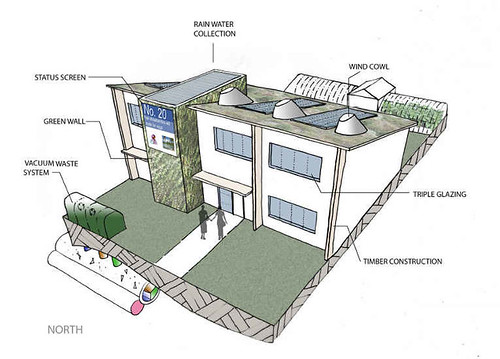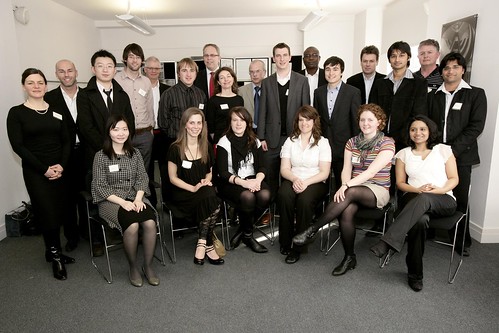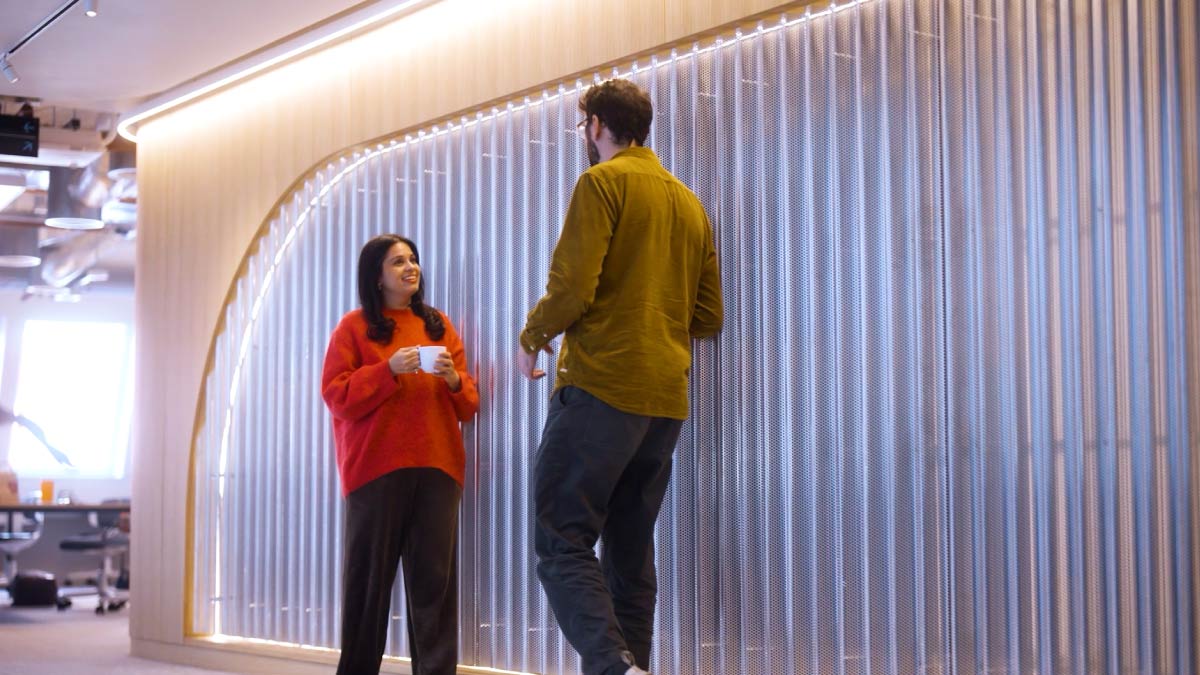LONDON - March 17, 2009
Highlights:
The people of Britain are in the driving seat when it comes to making our communities better places to live, according to independent research out today.
Commissioned by the global networking leader Cisco to investigate how 'connected' the British public feel to their local communities, the 'Urban 2020' survey found that 87 per cent of the respondents believe that it's the people that live there that make a community, while 64 per cent also believe it's primarily the responsibility of the local residents, rather than the government or the local council, to make their communities better places to live.
The research looked at the attitudes of more than 1,000 people towards the social, environmental and economic factors that affect community life in Britain. Its release coincides with the end of 'Urban 2020', a national competition that invited university students to share their vision of how the UK's communities could be more 'connected' in the future and be better adept at dealing with changing demographics and climate change.
Other research findings include:
- Virtual reality trumps 'real' reality. Nearly a third (28 per cent) of the respondents feel more part of a virtual online community than a physical one.
- 'Green space' and education top the league. Nearly 70 per cent rate the amount of green space available in their communities as good or very good, and 59 per cent rated schools in the same way. Affordable housing and community centres, however, scored lower, with just 5 per cent of the respondents rating them as very good.
- 'Green' steals economy's thunder. More people think that environmental issues (32 per cent) are top of the council's agenda, than 'economic' (25 per cent) or social (19 per cent) ones.
- Community facilities and good shops off the radar. People want to live in affordable, attractive places with large amounts of green space and low crime rates. Of less concern are community facilities or good local shops.
- Downturn will forge greater community spirit. Nearly a quarter agree or strongly agree that the sense of community will improve as a result of the economic downturn.
While there is evidence of positive attitudes from people towards their local communities, the findings also highlight a need to make improvements to urban infrastructures, as more than half (62 per cent) of the respondents don't think local communities support young people, and nearly half (45 per cent) are not convinced that their communities can support the number of families or the aging population either.
Addressing these issues were submissions to the 'Urban 2020' competition. To secure their place in the final, students from Cambridge, Manchester, Sheffield and other universities came up with ideas ranging from a community that is formed virtually before coming together in reality, to a model that was inspired by patterns of the famous 'Chinese knot'. Judged by a panel of influential figures in architecture, engineering, design and information technology, the winner was announced on 17 March 2009 at the Royal Institute of British Architects (RIBA).
The winning entry, 'Connect 4 Sustainability', was designed by Peter Sproule and James Hotson from Manchester School of Architecture and was based on a community where people, transport, work and energy are at the forefront of the community. The design created connections throughout all aspects of life, creating a sustainable, energy-efficient environment as a result.
The Urban 2020 judging panel included Mike Perry from the Intelligent Buildings Group at Building Research Establishment (BRE); Andy Murdoch, group director of the Infrastructure Group at Buro Happold; Howard Jones, director of Human Networks at the Eden Project; Ken Shuttleworth, co-founder of MAKE Architects; Femi Adewole, Groups Director of Operations at Notting Hill Housing; John-Paul Nunes, head of Education Projects at the Royal Institute of British Architects (RIBA); Emily Campbell, director of Design at the Royal Society Arts (RSA) and Alison Benjamin, editor of the Society section, the Guardian. Neil Crockett, director of Public Sector Operations at Cisco, chaired the judging panel.
Quotes:
Neil Crockett, director of Public Sector Operations at Cisco UK and Ireland, comments:
"Today, more than half the world's population lives in urban areas, and this phenomenon is set to rapidly increase. Cities consume 75 per cent of the world's energy and are responsible for 80 per cent of greenhouse gas emissions. We need an architecture that boosts productivity, spurs economic growth, supports environmental sustainability, and enhances the quality of life in urban environments."
"Whilst we were hugely impressed with the overall standard of the Urban 2020 entries, we were surprised that only a few had considered the role that technology must play in making our towns and cities better places to live. In these times of massive global change, cities must look to apply technology to the design and the development of sustainable communities to improve the quality of life and economic development, and to reduce the environmental impact."
Keywords/tags:
Urban 2020, Regeneration, Architecture, Connected Urban Developments, CUD, Communities, Towns, Virtual Communities, Infrastructure, Wireless, Networks
Links/URLs:
Urban 2020: www.cisco.com/uk/urban2020
Connected Urban Development
Cisco RSS feed: http://newsroom.cisco.com/dlls/rss.html
Background Information:
Cisco Connected Urban Development
Information technology has dramatically changed the way people work. Modern issues such as climate change, mobility and evolving demographics are creating further change. New network capabilities and IT solutions are needed to allow people to work in innovative, sustainable, and more collaborative ways. Cisco is working with world-leading cities to develop innovative broadband and ICT-based solutions that will help reduce carbon dioxide emissions. Launched in 2006, Connected Urban Development (CUD) is a five-year program in which Cisco has invested US$15 million in people, research and equipment to help create a global community of cities committed to addressing environmental sustainability. By creating replicable 'blueprints', the program aims to extend its benefits and learned best practices beyond the initial number of pilot cities.





